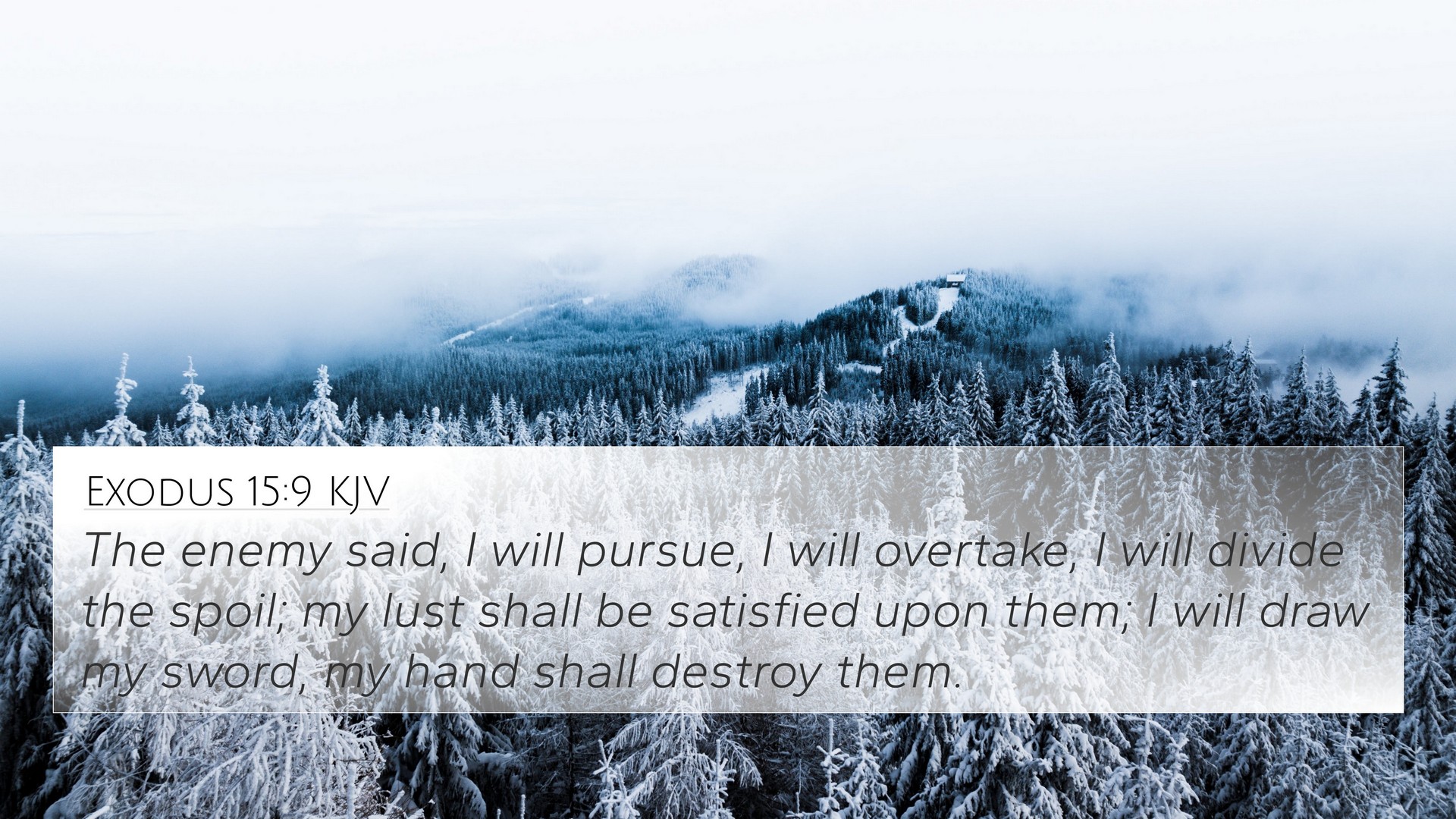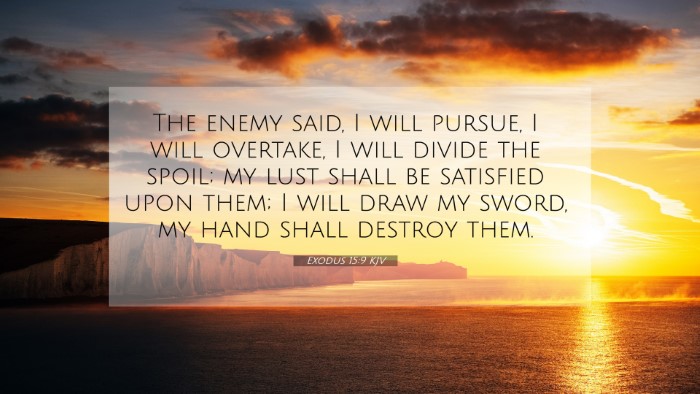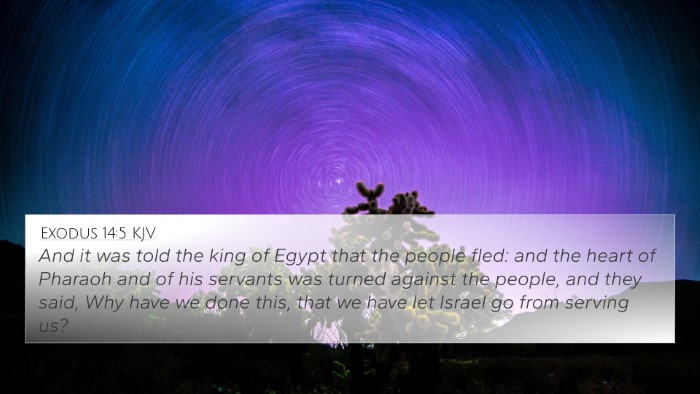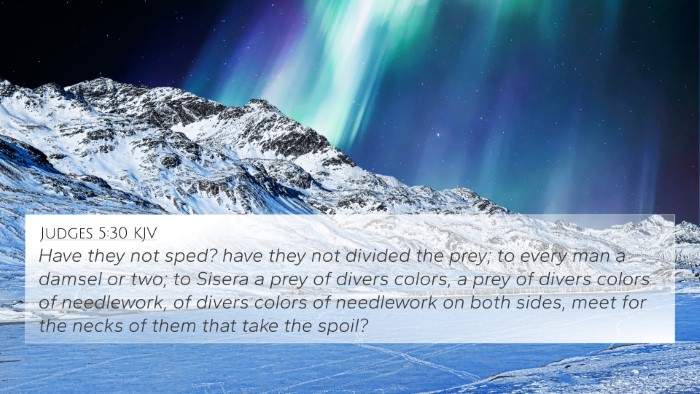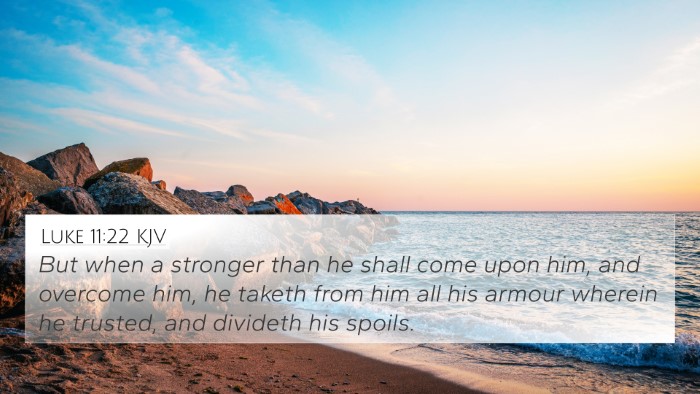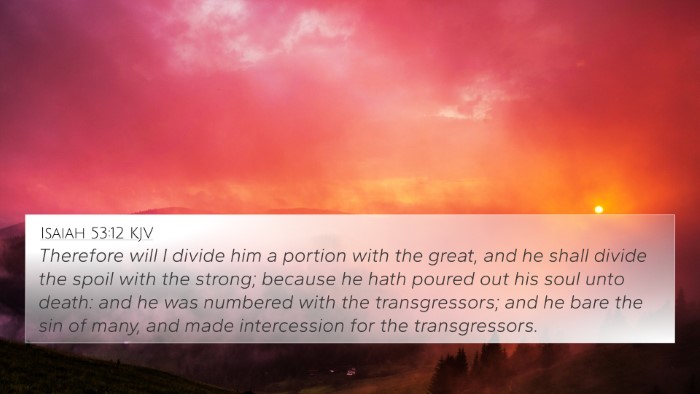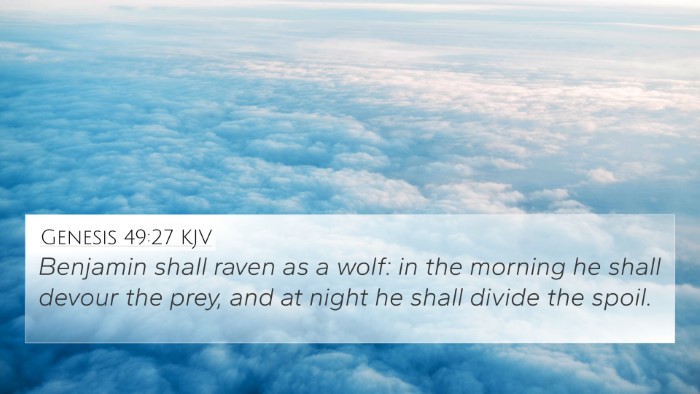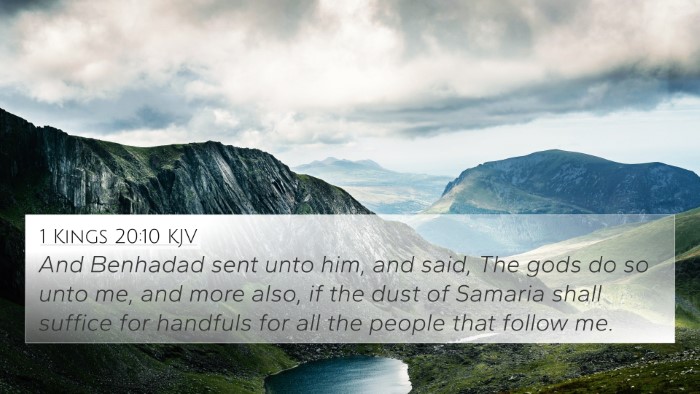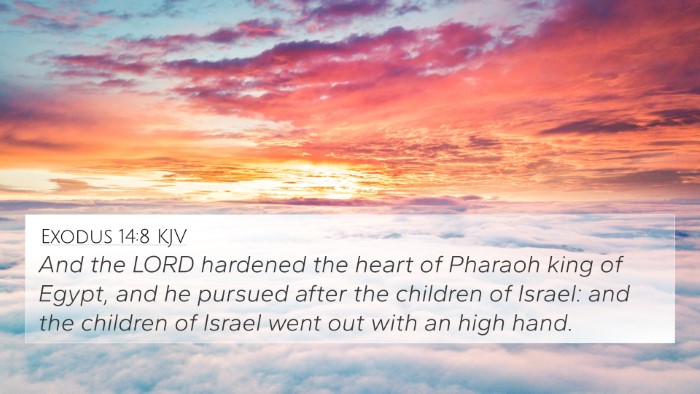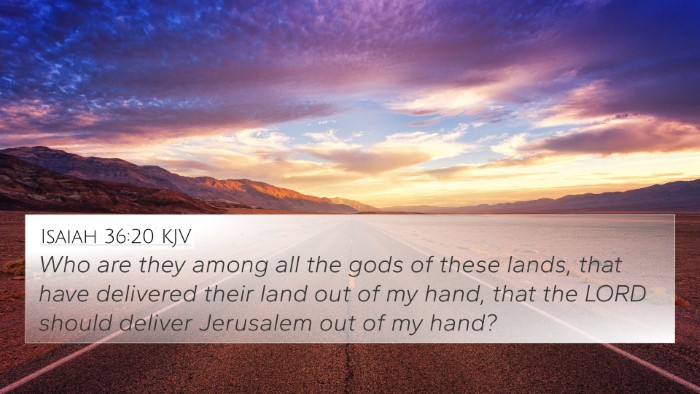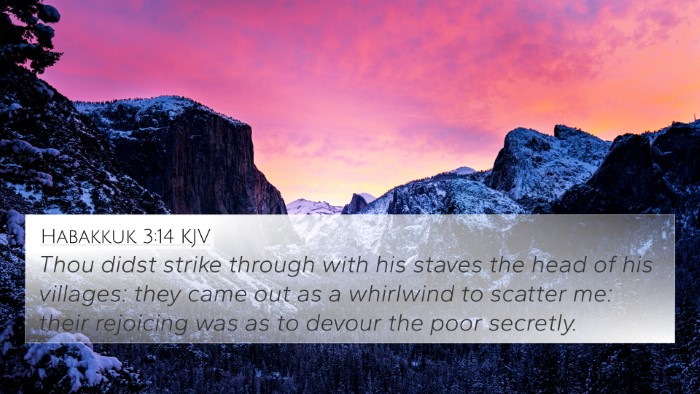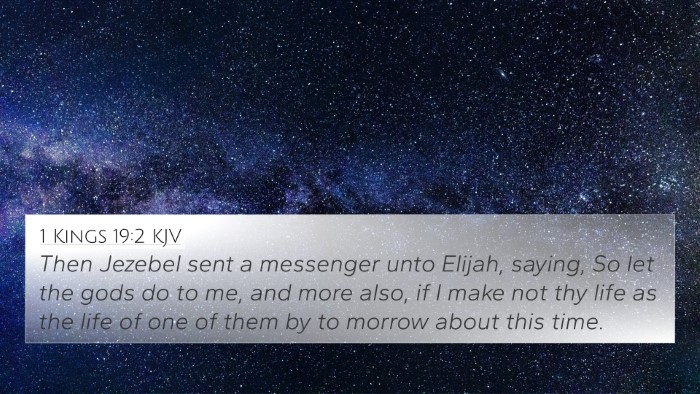Understanding Exodus 15:9
Exodus 15:9 states: "The enemy said, 'I will pursue, I will overtake, I will divide the spoil; my desire shall be satisfied upon them: I will draw my sword, my hand shall destroy them.'
Verse Summary
This verse captures the thoughts and intentions of Pharaoh's army as they pursue the Israelites after their escape from Egypt. It reflects the attitude of the enemies of God's people who are blinded by rage and ambition, determined to regain what they lost.
Commentary Insights
- Matthew Henry: He highlights that this verse exemplifies the arrogance and utter defiance of Pharaoh and his forces against God. They believe they can reclaim their dominance over the Israelites, reflecting a deeper spiritual blindness that comes from opposition to God's will.
- Albert Barnes: Barnes focuses on the psychological motivation behind the enemy's pursuit, explaining that the desire for wealth (spoil) and vengeance clouds their judgment. The phrase "my hand shall destroy them" illustrates their overconfidence and misapprehension of their own limitations against God’s power.
- Adam Clarke: Clarke emphasizes the futility of the enemies' efforts. The pursuit portrayed here is not just a physical one; it symbolizes a spiritual battle against God Himself. Clarke reminds readers that God’s deliverance is certain and that those who oppose Him will ultimately be thwarted.
Thematic Connections
This section delves into the thematic understandings and connections between Exodus 15:9 and other scriptural passages, illustrating recurring motifs of divine deliverance, human pride, and the consequences of opposition to God.
- Psalm 37:12-13: This passage speaks of the wicked plotting against the righteous, mirroring the pursuits of Pharaoh's army, and God's ultimate justice.
- Isaiah 43:17: God declares that He brings forth chariots and armies to nothing, reinforcing the certainty of His power against human adversaries.
- Romans 8:31: "If God is for us, who can be against us?" This verse affirms the assurance that God does not allow His people to be overtaken by their enemies.
- Hebrews 10:31: "It is a fearful thing to fall into the hands of the living God," echoing the tone of warning against pride and pursuit of strife against God's people.
- Micah 7:10: A proclamation that God's enemies will be humiliated, much like Pharaoh's army faced defeat.
- Revelation 19:11-21: The ultimate defeat of earthly armies through divine intervention, drawing parallels to the fate of Pharaoh’s forces.
- 2 Thessalonians 1:6: The principle of God avenging those who oppose His people reflects the demise Pharaoh faced.
Cross-Referencing Techniques
In study and interpretation, employing effective cross-referencing methods can greatly aid in understanding the full implications of Exodus 15:9. Here are some tips:
- Use a bible concordance to identify key terms related to the themes in this verse.
- Explore a bible cross-reference guide to find direct connections and thematic parallels.
- Engage in a cross-reference Bible study by connecting narratives and teachings across both the Old and New Testaments.
- Utilize a comprehensive Bible cross-reference material to deepen your understanding of these themes.
Conclusion
Exodus 15:9 serves as a powerful reminder of the battles faced in the pursuit of freedom and the futility of opposing God's sovereignty. Through careful analysis and cross-referencing, one can uncover rich theological insights while recognizing the importance of divine deliverance.
